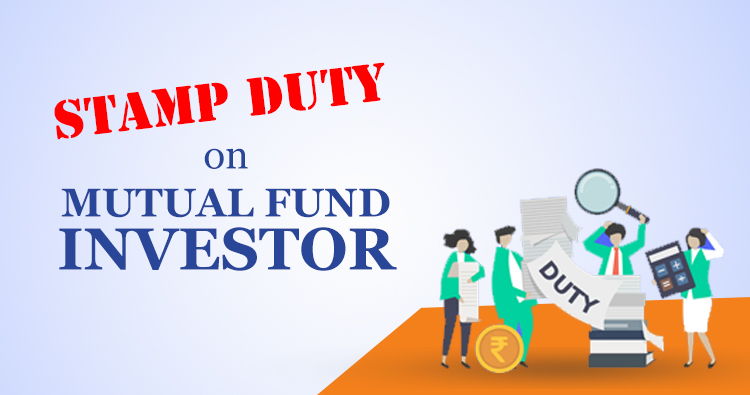

All you Need to Know about Stamp Duty on Mutual Fund Investments
There are different costs associated with mutual fund investment. Expense ratio is the annual fee that fund houses charge from its investors. Till this July, there was no fee for investing or buying mutual fund units. The mutual fund regulator had implemented a ‘no entry load’ rule on mutual fund way back in 2009. However, fast forward to 2020 and entry load has taken a new avatar as stamp duty.
As per SEBI’s directives, all your mutual fund investments, irrespective of the category of mutual fund and investment route, will attract stamp duty. However, the stamp duty is negligible, and it will notmake any significant impact on your mutual fund returns in the long-run.
In this article, we will explain all that you need to know about stamp duty and its impact on your mutual fund investments.
What is Stamp Duty?
Stamp duty is the charge that is applied to all mutual fund investments. Stamp duty came into effect from July. To put it simply, stamp duty is akin to the earlier entry load, as mutual fund investors have to pay stamp duty for every new investment.
So, whether you are investing in mutual funds through SIP, lump sum, transferring units from fund to another through Systematic Transfer Plan, your investments will attract stamp duty. It will also apply on all types of mutual fund schemes: equity mutual funds, debt mutual fund and hybrid mutual fund.
Fund houses will levy the stamp duty while purchasing of units, while redemption/ withdrawing funds from your earlier investments will not attract any stamp duty.
Stamp duty charge
As mentioned earlier, the stamp duty is insignificant. The rate of the stamp duty is 0.005% and the amount of stamp duty will depend on your investment amount. So, the stamp duty of 0.005% translates into Rs.5 for every investment of Rs.1 lakh.
Let us assume that you are making a lump sum investment of Rs.1 lakh. Prior to July, fund houses allotted units based on your investment amount. Depending on the current market scenario, they would allot a specific number of units. This means they invested the entire Rs.1 lakh in the market.
But the introduction of stamp duty has changed this process. Fund houses will now allot units worth of Rs. 99,995 after deducting the stamp duty of Rs.5. Therefore, you will get fewer units than earlier.
What should I do?
The registrar and transfer agent(R&T) of your mutual fund house will automatically debit the required stamp duty from your investment amount. You need not pay for the stamp duty separately. As the investment process remains same, you can continue with your SIPs and other investments as before.
As the stamp duty is negligible, you need not worry about stamp duty making any significant dent in your investments. With the increase in the holding period, the impact of your stamp duty will decrease.
Mutual fund investments have the potential to outperform other traditional saving options. Hence, even if we include the various costs associated with mutual fund investment, you would be better off by investing in equity mutual funds to fulfil your long-term financial goals.
Things to keep in mind
Conclusion:
Individual investors like you and me do not have to worry about the insignificant stamp duty of 0.005%. The cost associated with mutual fund investments will keep on changing. Planning and focusing on your financial goals is the best way to invest in mutual funds.
Consult me to know more.
This blog is purely for educational purpose and not to be treated as an personal advice. Mutual fund investments are subject to market risks, Read all scheme related documents carefully
609-610, Pinnacle Business Park, Corporate Road, Near Prahladnagar Auda Garden, Satellite, Ahmedabad 380015.
103, Goodwill Bizhub, Plot No. C-3C, Next to Ikea TTC Industrial Area, Turbhe, Navi Mumbai. 400703.
+91 7940191105(Ahmedabad Office)
+91 8879338162(Mumbai Office)
+91 7940191103, 7940191104
Grievance Redressal
DISCLAIMER : Mutual Funds and securities investments are subject to market risks and there is no assurance or guarantee that the objective of the Scheme will be achieved. Past performance of the Sponsor/AMC/Fund or that of any scheme of the Fund does not indicate the future performance of the Schemes of the Fund. Please read the Key Information Memorandum and the Offer Document carefully before investing.
Safe Assets © 2021